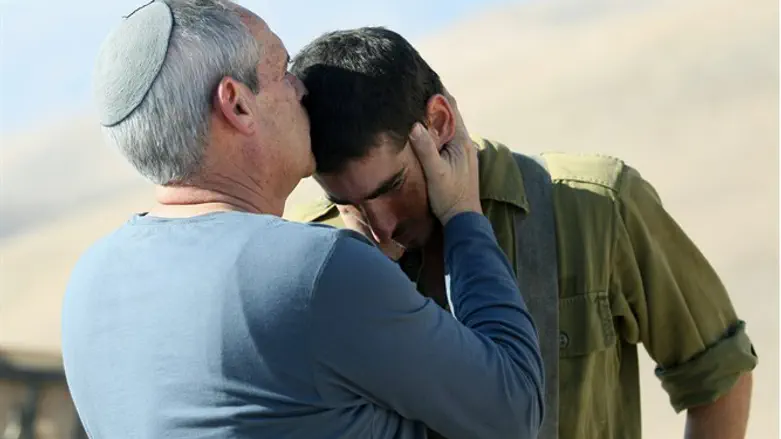
We'll use the initials MASL rather than the whole phrase.
MASL means: the actions of the fathers (and mothers) are indicators for the descendants.
One type of example of MASL is the fact that Avraham Avinu left Egypt (to which he and Sara went during a famine in Canaan) with great wealth. That augured well for Bnei Yisrael when they too left Egypt with great wealth.
Another type of MASL is as follows:
Avraham and Sara were very hospitable and that trait of HACHNASAT ORCHIM becomes a hallmark of the Jewish People.
Our learning good traits from the deeds of our original and special forebears set the patterns of the conduct of their descendants - us.
And so on.
Yet another form of MASL is, perhaps, mislabeled. We can say that sometimes the deeds of the ancestors alert us NOT to emulate them. The Avot & Imahot were human beings. They were not perfect. They are special to us and on a higher spiritual plain, but they were human.
Sara demanding that Avraham banish Hagar and Yishmael was sanctioned by G-d, who told the hesitant Avraham to do as Sara said. Notwithstanding, that particular MAASEI AVOT is not one to form a pattern for the BANIM.
From looking at the events in the life of Yaakov Avinu, there seems to be more to apply (or not) to our own lives, more lessons to learn, more real-life situations for us to examine well - what we learn in Vayeitzei and the sedras that follow - than previously with Avraham and Yitzchak.
Perhaps this is a subjective view based on the fact that not many of us have been driven from our land by famine, nor have we had to get involved in a war of kings vs kings in order to save our nephew. Nor bring our beloved child as an offering. Nor have many of us dug wells in search of water only to have them filled in and sealed by hostile locals.
Come to think of it, there are real life lessons in which even the more obscure MAASEI AVOT can serve as templates for how we can cope and handle our modern day versions of similar situations.
But, somehow, things that happened to Yaakov seem to hit home in a harder and more direct way.
Tension between brothers is not just a story of a long time ago. Many of us experience it. So too, not everyone's shiduch goes smoothly. Many people find themselves alone for part of the journey of life and need to develop a close and real relationship with G-d to help us through difficult times. Certainly, many can relate to the parnasa issues that Yaakov faced.
Actually, we need to pay close attention to all we find in B'reishit, apply what is good and reject that which is negative. It isn't always black and white, but we need to use the deeds of our ancestors - both good and bad - to discern what we should and what we shouldn't do.
